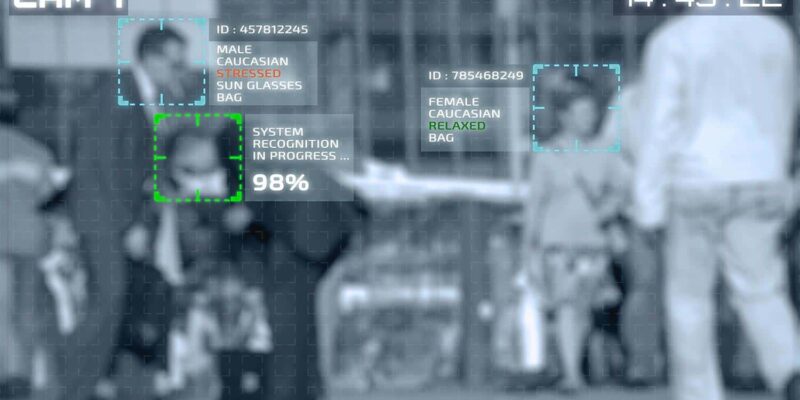Well, folks, here we go again. The Chinese Communist Party, the same government that built the world’s most sophisticated surveillance state, the same people who track every citizen’s movement, suddenly—out of nowhere—decides that maybe, just maybe, facial recognition is a little too much. That’s right. Beijing just rolled out new regulations on facial recognition technology, supposedly to protect “personal privacy.” If you think that sounds a little suspicious, you’re not alone.
So, let’s break this down. What’s really happening? Why would the most invasive government on the planet suddenly decide to pump the brakes on facial recognition? And what does this mean for the rest of the world?
China’s Surveillance Empire—A Quick Recap
First, let’s remember who we’re dealing with here. The Chinese Communist Party (CCP) is not exactly known for respecting personal privacy. This is the same government that runs the infamous Social Credit System, where cameras track every citizen’s behavior—whether you jaywalk, buy too much alcohol, or criticize the government online. They’ve got AI-powered surveillance that can recognize your face in seconds, track your movements, and even predict if you’re a “threat” before you’ve done anything wrong.
And yet, now they’re worried about privacy? Now they want to regulate facial recognition? Yeah, sure.
The New Rules—What Do They Say?
On June 1st, China will implement new regulations restricting the use of facial recognition technology. The Cybersecurity Administration of China (CAC), the country’s top internet regulator, says the rules are designed to address growing public concerns over privacy and data security. According to their statement, the rules will:
Limit who can use facial recognition technology—only in “necessary” cases.
Require alternative verification methods—like ID cards, for situations where facial recognition is not absolutely needed.
Increase transparency on how facial data is collected and stored.
On the surface, this sounds like a win for civil liberties. But let’s be real—does anyone actually believe the CCP is scaling back surveillance out of the goodness of their heart?
What’s Really Going On?
Here’s the truth: The CCP isn’t scared of facial recognition. They’re scared of losing control.
1. People Are Pushing Back
Believe it or not, even in China, people don’t like being watched 24/7. Over the past few years, public opposition to facial recognition has been growing. Lawsuits have been filed against companies and government entities over unauthorized facial data collection. Even state-run media have started reporting on people’s concerns.
And when the CCP senses unrest, they don’t back off. They pivot. They regulate just enough to keep people from revolting while maintaining control.
2. The AI Race and Data Security
China is in a fierce technological arms race with the United States. AI is the new battleground, and facial recognition is a huge part of that. But guess what? If companies collect too much data without proper oversight, that data becomes vulnerable—to hackers, foreign intelligence agencies, even domestic competitors.
By regulating facial recognition, Beijing is actually centralizing control. They’re making sure they hold all the keys to the surveillance kingdom, not just private tech companies or local governments.
3. International Optics—A PR Stunt for the West?
China knows it has a serious image problem. Western governments and human rights groups have repeatedly slammed the CCP for its mass surveillance, especially in places like Xinjiang, where facial recognition is used to track and oppress Uyghur Muslims.
So what better way to push back against criticism than to introduce a few “privacy laws” and pretend they care? This way, the next time a Western official calls out China’s Orwellian surveillance state, the CCP can say, “Actually, we just passed privacy protections—so mind your own business.”
The Bottom Line
This is not about protecting privacy. It’s about protecting power. The CCP will continue to use facial recognition to monitor its citizens—just more selectively, more strategically, and with even more control centralized in Beijing.
So don’t be fooled by the headlines. This isn’t a step toward freedom—it’s just another move on the chessboard of authoritarian rule.
And if you think this kind of thing only happens in China, well… maybe take another look at how surveillance is creeping into your own backyard. Because once governments get a taste of control, they rarely give it up.

